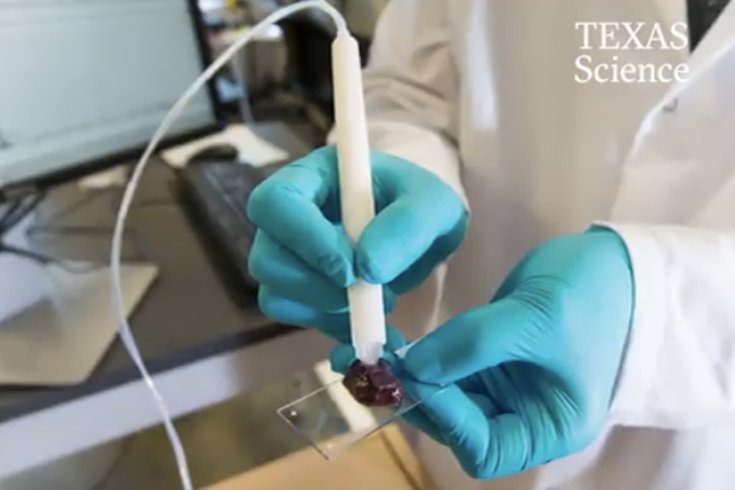
September 06, 2017
 Credit/Vivian Abagiu / University of Texas at Austin
Credit/Vivian Abagiu / University of Texas at Austin
The revolutionary MasSpec pen could be used during surgery to identify cancerous tissue in real-time.
Researchers have invented a powerful tool to rapidly and accurately identify cancer in real-time.
The MasSpec Pen, developed by a team of scientists and engineers at The University of Texas at Austin, delivers results in about 10 seconds – more than 150 times as fast as existing technology. The handheld instrument gives surgeons precise diagnostic information about what tissue to cut or preserve, helping improve treatment and reduce the chances of cancer recurrence.
The research is described in the Sept. 6 edition of the journal Science Translational Medicine.
"If you talk to cancer patients after surgery, one of the first things many will say is 'I hope the surgeon got all the cancer out,' " said Livia Schiavinato Eberlin, an assistant professor of chemistry at UT Austin who designed the study and led the team, in a statement.
"It's just heartbreaking when that's not the case. But our technology could vastly improve the odds that surgeons really do remove every last trace of cancer during surgery."
Currently, the state-of-the-art method for diagnosing cancers and determining the boundary between cancer and normal tissue during surgery is Frozen Section Analysis.
That process, slow and sometimes inaccurate, can take 30 minutes or more to prepare and interpret by a pathologist, which increases patient risks of infection and the negative effects of anesthesia.
And for some types of cancer, the method can yield unreliable results in as many as 10 to 20 percent of cases.